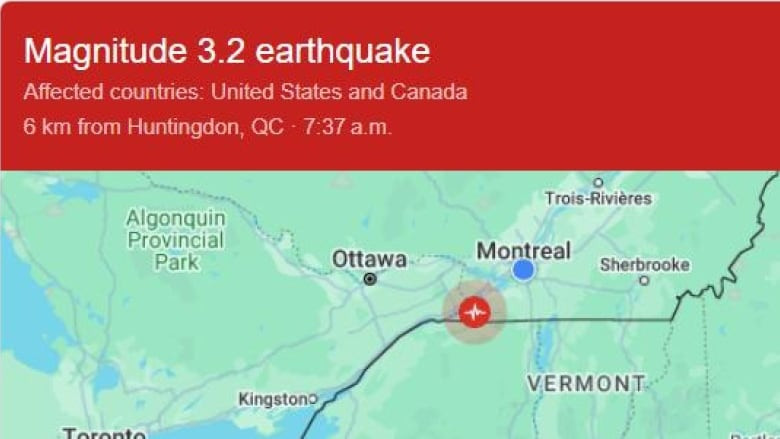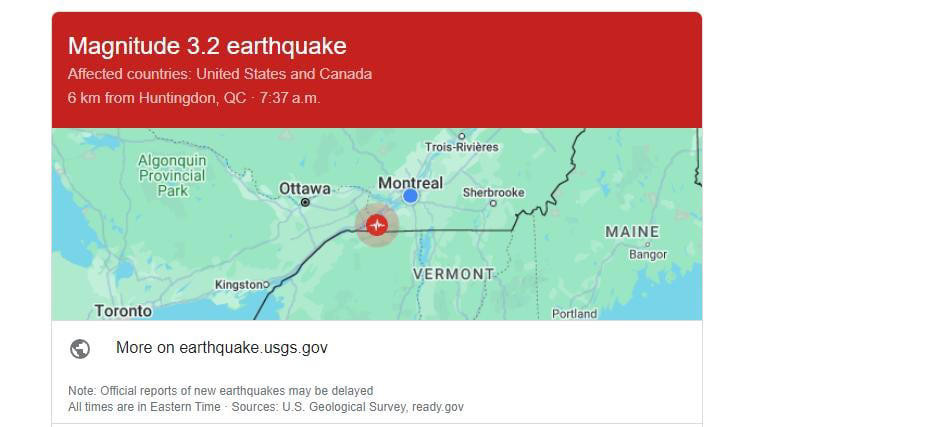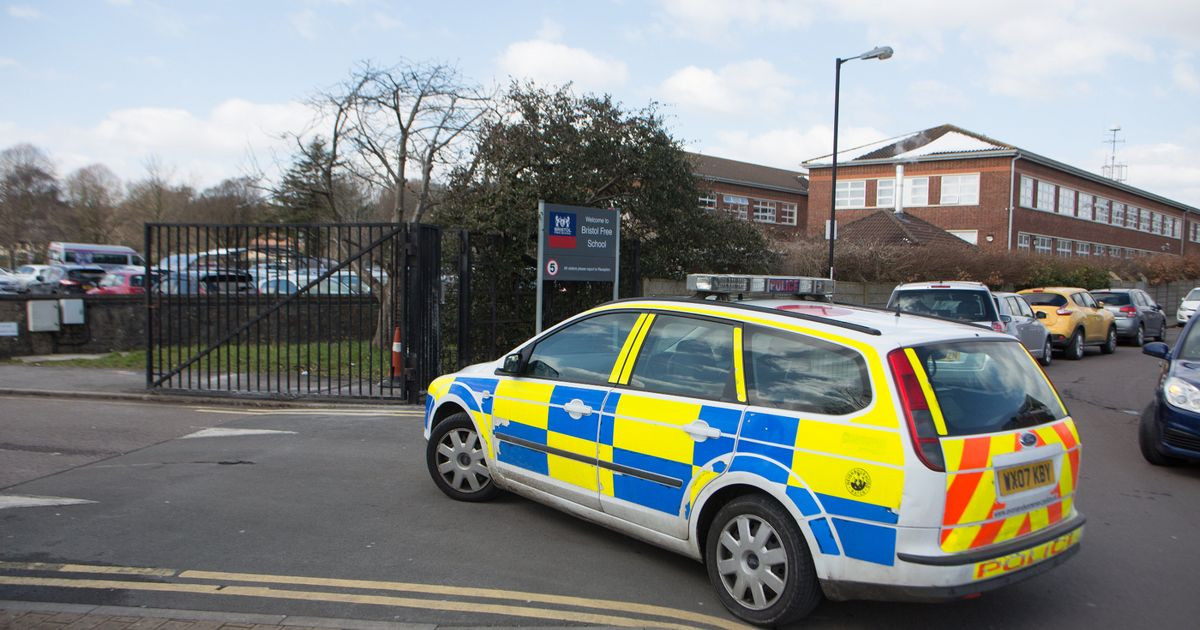Some residents in several parts of Quebec were jolted awake early Sunday morning by a minor earthquake. Earthquakes Canada says the 4.6 magnitude quake, at a depth of 18 kilometres, happened around 5:45 a.m. The epicentre was located about 20 kilometres northwest of Drummondville and 40 kilometres south of Trois-Rivières.
"It was widely felt in the region, and we got some reports all the way down in Ottawa and Quebec City as well," said Mareike Adams, seismologist with Natural Resources Canada.
Tremors were also felt from the Charlevoix and Bas-Saint-Laurent regions through the Montreal area, including the Laurentians and in the Outaouais.
"For these kinds of events, it often feels sometimes like a really, really large truck or train goes by," Adams said, adding no damage was reported from the quake.
While magnitude 4 earthquakes are relatively rare in eastern Canada, the Montreal area is located in the western Quebec seismic zone, where smaller events occur fairly often.
"This region includes Ottawa Valley, up to Montreal, Temiscamingue, Laurentians and eastern Ontario, so it's a large seismic zone," Adams said.
She said the region gets one earthquake approximately every five days, but the majority of those are very small and are not felt.
Earlier this week, an earthquake early detection system was activated in British Columbia to provide the public with a few seconds of warning ahead of a potentially harmful tremor.
Adams says that system will be activated in eastern Canada in the fall.
Earthquake's Impact
The earthquake, with its epicenter near Pierreville, was felt as far as Montreal and Quebec City. While the tremor was considered minor, it was strong enough to shake houses and cause some disruption for residents in the affected areas. Many reported feeling the ground shake, rattling windows, and some even experienced shifting furniture. However, there were no reports of significant damage or injuries, which is fortunate considering the relatively strong magnitude of the quake.
Earthquakes in Eastern Canada
Eastern Canada is not known for major earthquakes, but the recent event serves as a reminder that seismic activity can occur in the region. The area around Montreal is situated in the western Quebec seismic zone, which experiences frequent smaller earthquakes, although most of them are too weak to be felt. While magnitude 4 earthquakes are uncommon in this part of Canada, they are not unprecedented. The Montreal area has experienced a few similar events in recent years, with some causing slight damage. The recent earthquake highlights the importance of being prepared for seismic activity, even in areas not known for major quakes.
The Future of Earthquake Preparedness
The recent earthquake in Quebec comes at a time when the Canadian government is actively working to improve earthquake preparedness across the country. Earlier this week, an early detection system was activated in British Columbia to alert residents of impending tremors, giving them a few seconds to seek safety. The system is set to be activated in eastern Canada in the fall, providing a much-needed layer of protection for communities vulnerable to seismic activity. This investment in early warning systems signifies a proactive approach to earthquake preparedness, potentially saving lives and reducing the impact of future events.
Living With Earthquakes
While the recent earthquake in Quebec may have been a wake-up call for some, it's important to remember that earthquakes are a natural part of life in many parts of the world. While Canada is generally considered a relatively safe country when it comes to earthquakes, the recent event highlights the importance of being prepared and understanding the risks associated with seismic activity. By staying informed, taking precautions, and having a plan in place, individuals and communities can minimize the impact of earthquakes and ensure their safety.



















